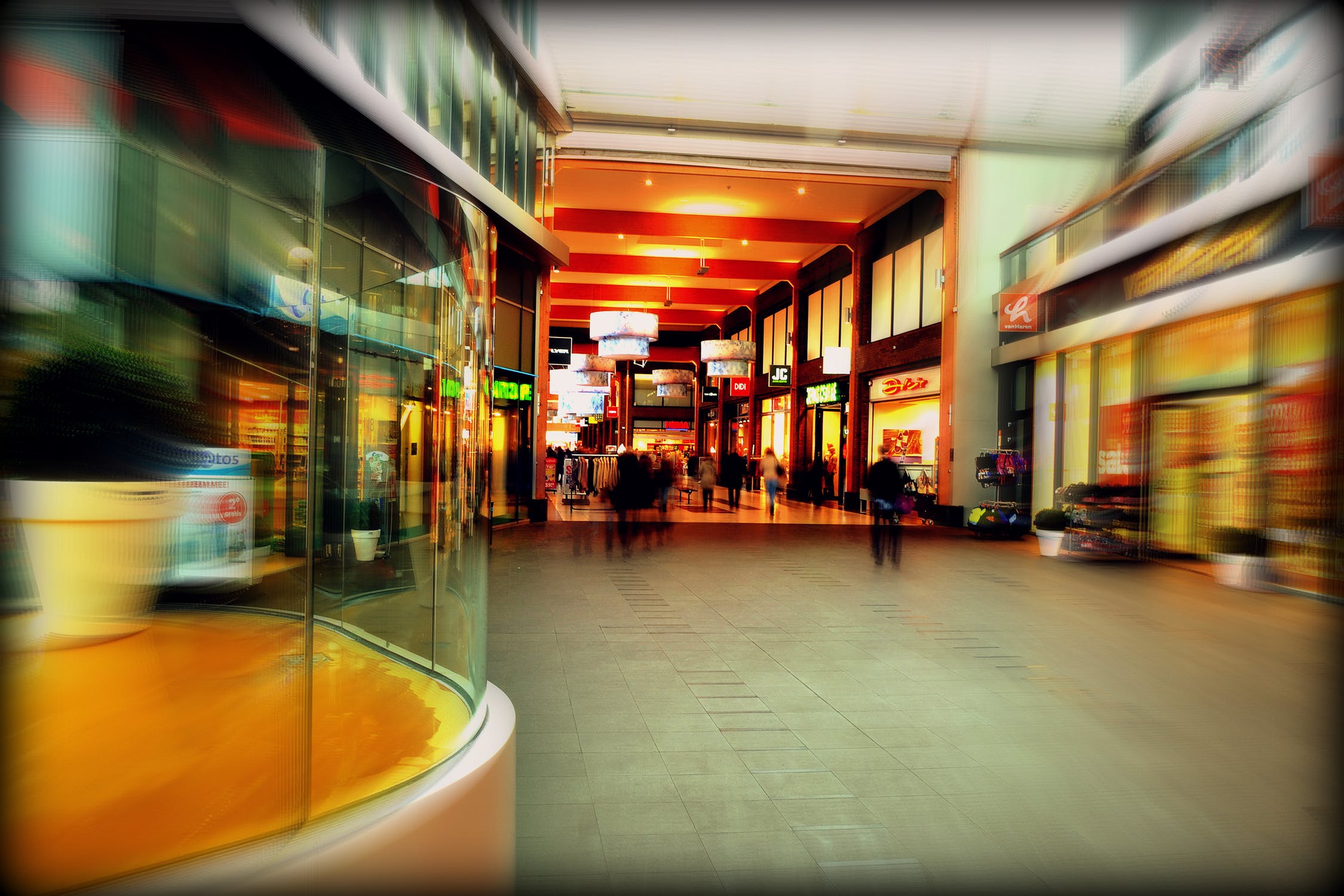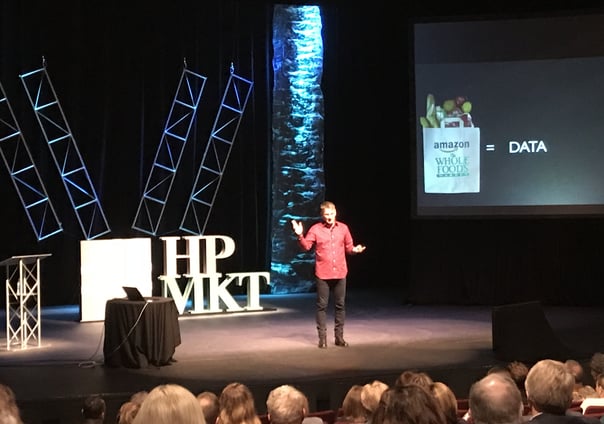
Doug Stephens, “The Retail Prophet” and internationally recognized consumer futurist, started his keynote presentation at High Point Market on Sunday by depressing his audience with the statistic that 8,643 retail stores closed in 2018, and 10,000 more are projected to fail in 2019.
His news got worse.
Amazon and its effectiveness over ease of use

In 2017, consumers spent $2.3 trillion online, with e-commerce enjoying a 21% year-on-year increase. Stephens assured us there was no way to slow down that trajectory.
Pivoting to the Amazon success story, he shared how Amazon Prime’s membership went up 47% over the last reported quarter, and has a 96% renewal rate for second- and third-year members. That is a crazy level of loyalty “stickiness”! Plus, 82% of those Prime members are in households that earn more than $110,000 per year.
When he told us he predicted we were experiencing “the end of the beginning of e-commerce,” the groans got louder. He said Amazon’s website was like a chainsaw. “It’s not pretty or fun to use, but it is effective at what it does.”
According to Stephens, 57% of the people who go to Amazon know what they want. It’s not exciting, and it’s not interactive or social. There’s no wine and cheese party while you’re buying, but that’s not the point.
And it doesn’t matter, because significant changes are coming.
The future of Amazon & the e-comm experience
Technologies like augmented reality (AR), virtual reality (VR), and those that provide a tactile sensation; automatic replenishing of products used often like water filters or laundry detergent; and 3-D printers that can create prototypes in real time are all part of our very near future, according to Stephens.
After he scared us with all these science fiction concepts, he divined the question on everyone’s minds: “What is the purpose of a brick and mortar store in this new world order?”
Today, it’s merchandising products, delivering product information, and facilitating a purchase. Want to survive and thrive? Forget that plan. A physical store is not just a place to sell a product, it is a place to distribute an experience. The days of sales clerks are over.
Half of consumers think they know more than the retail sales staff because they have researched online, and 67% think clerks lie to them.
According to an Oxford University study, 92% of retail sales staff will be replaced by AI and robotics within the decade.
Preparing for the inevitable
Finally, before we’d all lost faith in the future, Stephens shared his solution for keeping furniture stores open in the face of technological Armageddon. Change your focus to the five elements of remarkable customer experience, which he summed up with the acronym SUPER.
- S – Surprise your customers with experiences they didn’t expect, like classes, clinics, and interactive events. Macy’s gave its furniture customers in 45 stores the opportunity to look at their rooms through VR. The average order increased by 60% as a result.
- U – Create a unique experience by using your space in a completely different way. Show how you make the products or design your showroom as actual rooms in a home.
- P – Personalize the products and the experience. Customization is a major trend that is growing exponentially. Millennials love having their stamp on everything.
- E – Engage your clients with your brand by creating a holistic experience in which all their senses are delighted. German outdoor gear brand Globetrotter has tsunami and arctic chambers for consumers to try out their clothing.
- R – Repeatable experiences are those that can be replicated every time for everyone. Consistency in experiences is crucial to building brand loyalty.

For those retailers who shook their heads in frustration, Stephens offered these simple suggestions:
- Go through every step in your current customer engagement process and determine, one at a time, how you can make them a much better experience.
- Since 80% of all retail buying is influenced by your mobile presence, make sure your website is compelling and updated constantly.
- Keep your social media presence entertaining and focus on the stories that define your brand.



